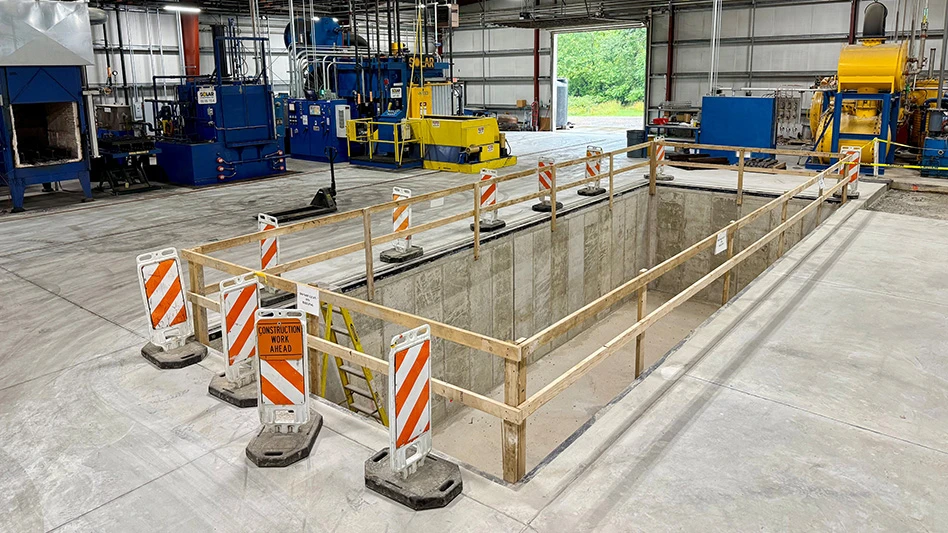
Eve Air Mobility
Eve Air Mobility, which is manufacturing and providing services for electric vertical take-off and landing (eVTOL) aircraft, unveiled its first full-scale eVTOL prototype at the Farnborough International Airshow 2024. The aircraft was built in the Embraer test facility of Gaviao Peixoto, Sao Paulo State, Brazil.
"Our global team of engineers have shown exceptional dedication and expertise to successfully assemble our first full-scale eVTOL prototype," said Johann Bordais, CEO of Eve Air Mobility. "This is a significant milestone that underscores our commitment to safety, accessibility and innovation. As we now turn our attention toward the preparation of a rigorous testing campaign, we are not just creating an aircraft, we're building a comprehensive ecosystem of solutions that will shape the future of the Advanced Air Mobility industry."
As Eve advances into the next phase of development, the eVTOL prototype already has a series of comprehensive testing campaigns. These campaigns are designed to meticulously assess every aspect of the aircraft's operation and performance, from flight capabilities to safety features. These valuable insights will play an important role in refining the design and functionality of the aircraft. "This extensive testing phase begins the next fundamental step in our journey," said Bordais. "It ensures that our eVTOL meets the high standards and expectations we've set for performance and safety."
Through its relationship with Embraer, the world’s third-largest aircraft manufacturer, Eve can take advantage of Embraer’s 55 years of experience developing, designing, certifying, and producing aircraft as it develops its eVTOL. Additionally, customers will benefit from having access to an existing global network of service and support locations, critical to ensuring reliable, safe, and efficient operations.
With letters of intent for 2,900 eVTOLs, Eve’s aircraft uses eight dedicated propellers for vertical flight and fixed wings to fly in cruise, with no change in the position of these components during flight. The concept includes an electric pusher powered by dual electric motors providing propulsion redundancy.
In addition to the prototype roll-out, Eve completed selecting primary suppliers for its eVTOL aircraft.
Through a memorandum of understanding, Eve Air Mobility and Siemens Smart Infrastructure, a manufacturer of electrical and digital technologies and solutions, are partnering to evaluate the electrical infrastructure and energy management services needed to support safe, efficient, and scalable eVTOL operations. Together, the two companies will collaborate on evaluating the energy service needs for eVTOL aircraft and demand for these services across the United States as the Advanced Air Mobility (AAM) industry grows. Siemens Smart Infrastructure has its U.S. corporate headquarters in Peachtree Corners, Georgia. Eve is based in Melbourne, Florida.
Integrating AAM into the existing transportation ecosystem offers an additional zero-emission option for urban mobility, reduces travel time, and accelerates decarbonization efforts. Similarly, eVTOL technologies are expected to transform communities through investments in infrastructure, electrification, new jobs, and freedom of movement, thereby creating a Target Addressable Market anticipated to be greater than US$760 billion by 2040.
“As a market leader in electrical infrastructure, Siemens is excited to continue driving the evolution of this futuristic industry, alongside Eve Air Mobility,” said John Kasuda, head of the airports and vertiports markets at Siemens Smart Infrastructure North America. “Our relationship with Eve will formulate the most valued approach to energy services for airports, vertiports, eVTOL operators, and other AAM stakeholders.”
“The results and insights that Siemens and Eve Air Mobility will gain from this collaborative effort are expected to inform our strategy in preparing the ecosystem and developing services at scale for customers in the U.S. and, potentially, around the world,” said Luiz Mauad, VP of Customer Services at Eve Air Mobility.
The energy services Siemens and Eve are exploring will support the electrical infrastructure and provide fleet operators with the confidence to launch and scale AAM operations. These models would ultimately help minimize upfront capital impacts, thereby accelerating the transition to AAM while overcoming potential obstacles to entry.
Eve continues to develop a comprehensive portfolio of agnostic services and operations solutions. This includes Vector, a unique Urban Air Traffic Management software designed to optimize and scale AAM operations worldwide.
Latest from Aerospace Manufacturing and Design
- Build your Controlled Unclassified Information (CUI) toolkit
- Michigan Advanced Air Mobility (AAM) Initiative established
- Threaded adjustable grippers
- GKN Aerospace accelerates additive fabrication for fan case mount ring
- Expanded offering of internal coolant live tools
- #47 Lunch + Learn Podcast with INSACO
- Doncasters’ Groton expansion reaches major milestone
- Hardware-encrypted drive with trusted supply chain





